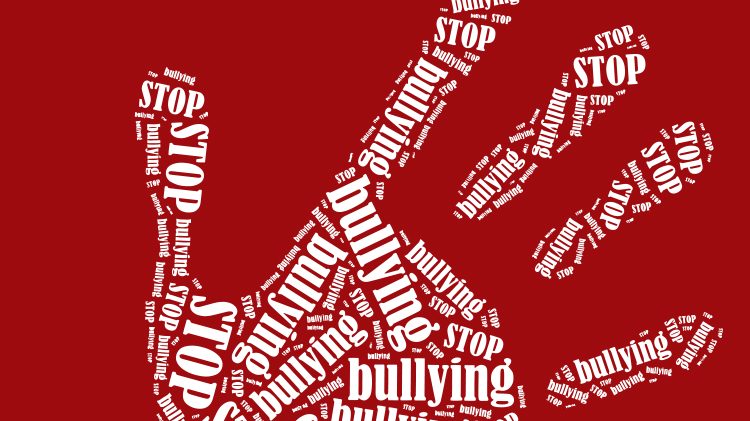The Relationship Between Frequent Bullying and Subjective Well-Being in Indonesian Children
The aim of this study was to ascertain the relationship between bullying (at home and at school) and subjective well-being (SWB) across three age groups (8, 10, and 12 years old) in Indonesia. This was a cross-sectional study that used data from the third wave of the Children’s Worlds Survey (N = 21,002; 49.4% boys, 50.6% girls), which was conducted in West Java Province, Indonesia. Bullying actions were measured by self-reported frequency of being a victim of each action by siblings and by other children during the last month. For the data analysis, a subsample was considered for each kind of bullying report (physical, verbal, and psychological) stating children were bullied more than three times and reports stating children were never bullied. SWB was measured using the Children’s Worlds Subjective Well-Being Scale (CW-SWBS) and the Overall Life Satisfaction scale (OLS). Data were analysed using linear regression and explained using Cummins’ theory of homeostasis. Being bullied demonstrates a significant negative contribution to the SWB of Indonesian children. Gender displays significant SWB differences, with girls showing higher scores than boys. Age also displays significant differences in SWB scores, with an increase from 8 to 10 years old and a decrease from 10 to 12. Bullied children seem to adapt to the bullying and maintain rather high levels of SWB, but in general their scores are significantly lower than non-bullied children, with the exception of children 8 years of age. Bullying is a serious problem which needs to be taken into account in order to help these children whose mental health might be at serious risk.
Population Review
Volume 60, Number 1, 2021
Type: Article, pp. 26-50
The Relationship Between Frequent Bullying and Subjective Well-Being in Indonesian Children
Authors: Ihsana Sabriani Borualogo and Ferran Casas
Affiliations: Faculty of Psychology, Universitas Islam Bandung, Indonesia (Borualogo); Research Institute on Quality of Life, Universitat de Girona, Spain, and the Doctoral Program on Education and Society, Faculty of Education and Social Science, Universidad Andrés Bello, Chile (Casas).
Corresponding author/address: Ihsana Sabriani Borualogo,Faculty of Psychology Universitas Islam Bandung, Indonesia; email: ihsana.sabriani@unisba.ac.id
Abstract
The aim of this study was to ascertain the relationship between bullying (at home and at school) and subjective well-being (SWB) across three age groups (8, 10, and 12 years old) in Indonesia. This was a cross-sectional study that used data from the third wave of the Children’s Worlds Survey (N = 21,002; 49.4% boys, 50.6% girls), which was conducted in West Java Province, Indonesia. Bullying actions were measured by self-reported frequency of being a victim of each action by siblings and by other children during the last month. For the data analysis, a subsample was considered for each kind of bullying report (physical, verbal, and psychological) stating children were bullied more than three times and reports stating children were never bullied. SWB was measured using the Children’s Worlds Subjective Well-Being Scale (CW-SWBS) and the Overall Life Satisfaction scale (OLS). Data were analysed using linear regression and explained using Cummins’ theory of homeostasis. Being bullied demonstrates a significant negative contribution to the SWB of Indonesian children. Gender displays significant SWB differences, with girls showing higher scores than boys. Age also displays significant differences in SWB scores, with an increase from 8 to 10 years old and a decrease from 10 to 12. Bullied children seem to adapt to the bullying and maintain rather high levels of SWB, but in general their scores are significantly lower than non-bullied children, with the exception of children 8 years of age. Bullying is a serious problem which needs to be taken into account in order to help these children whose mental health might be at serious risk.
Keywords
Bullying, children, Indonesia, overall life satisfaction, school, siblings, subjective well-being
© 2021 Sociological Demography Press
MLA
Borualogo, Ihsana Sabriani and Ferran Casas. “The Relationship Between Frequent Bullying and Subjective Well-Being in Indonesian Children.” Population Review, vol. 60 no. 1, 2021. Project MUSE muse.jhu.edu/article/784301.
APA
Borualogo, I.S., & Casas, F. (2021). The Relationship Between Frequent Bullying and Subjective Well-Being in Indonesian Children. Population Review 60(1), https://www.muse.jhu.edu/article/784301.
Chicago
Borualogo, Ihsana Sabriani, and Ferran Casas. “The Relationship Between Frequent Bullying and Subjective Well-Being in Indonesian Children.” Population Review 60, no. 1 (2021) muse.jhu.edu/article/784301.
Endnote
TY – JOUR T1 – The Relationship Between Frequent Bullying and Subjective Well-Being in Indonesian Children A1 – Borualogo, Ihsana Sabriani A1 – Casas, Ferran JF – Population Review VL – 60 IS – 1 PY – 2021 PB – Sociological Demography Press SN – 1549-0955 UR – https://muse.jhu.edu/article/784301 N1 – Volume 60, Number 1, 2021 ER –
Always review your references for accuracy and make any necessary corrections before using. Pay special attention to personal names, capitalization, and dates. Consult your library for more information on citing sources.




